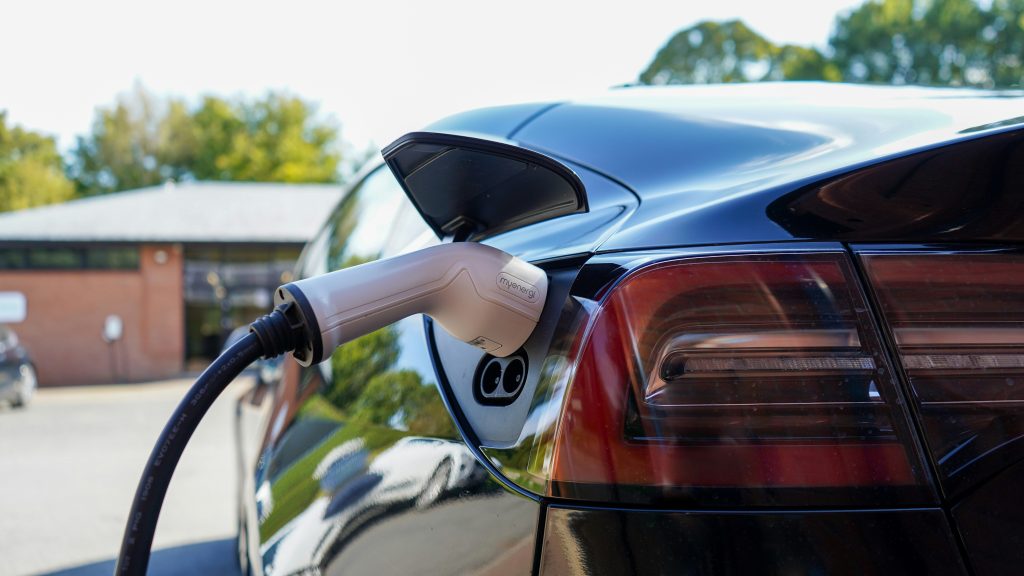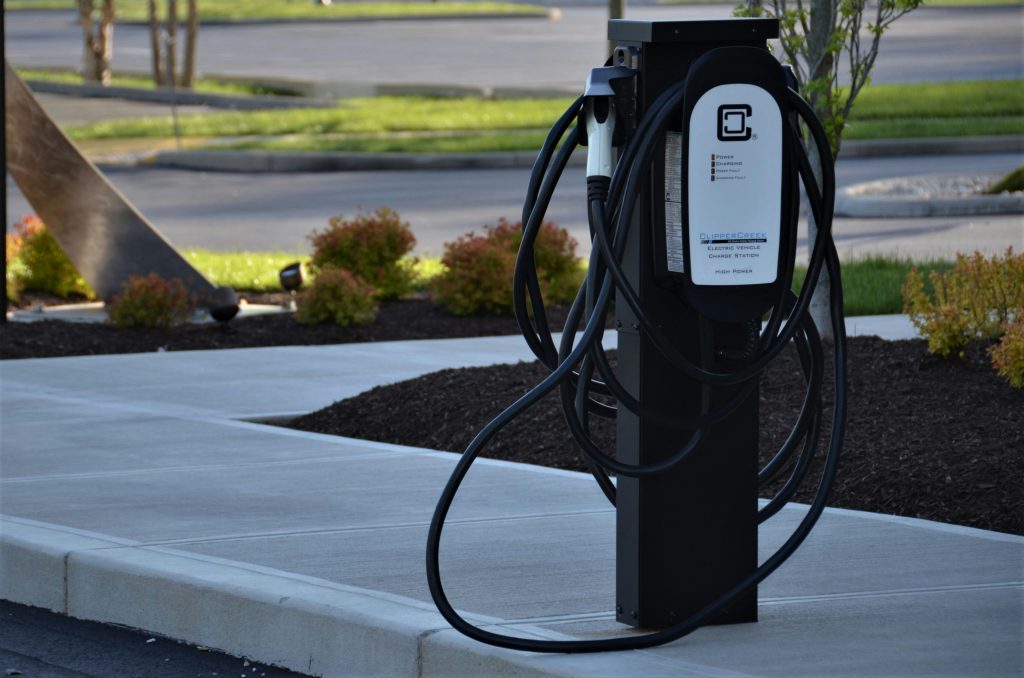Electric Cars vs Traditional Gasoline Cars
Electric cars and traditional gasoline cars have distinct differences that set them apart in terms of technology and environmental impact. Electric cars are powered by rechargeable batteries, producing zero tailpipe emissions, while traditional gasoline cars rely on burning fossil fuels, contributing to air pollution and greenhouse gas emissions. Electric cars offer a more sustainable and eco-friendly transportation option compared to gasoline cars, aligning with the global effort to combat climate change.
In terms of performance, electric cars are known for their instant torque and smooth acceleration due to their electric motors, providing a silent and efficient driving experience. On the other hand, traditional gasoline cars have a long-established infrastructure for refueling and typically offer longer driving ranges, making them a preferred choice for some consumers who prioritize convenience and familiarity. Despite the differences, the shift towards electric cars reflects a growing trend towards cleaner and more sustainable transportation options for the future.


Environmental Impact of Gasoline Cars
Gasoline cars have long been a staple on the roads, but their environmental impact cannot be ignored. The combustion of gasoline in traditional cars releases harmful pollutants into the atmosphere, contributing to air pollution and poor air quality. These emissions, such as carbon dioxide, nitrogen oxides, and particulate matter, are major contributors to climate change and respiratory illnesses in humans.
In addition to air pollution, gasoline cars also have a significant impact on water and soil quality. Oil leaks, coolant spills, and improper disposal of automotive fluids can contaminate water sources and harm aquatic ecosystems. The extraction of oil for gasoline production further damages the environment through habitat destruction, water pollution, and biodiversity loss.
Advantages of Electric Cars
Electric cars have several advantages over traditional gasoline cars. One significant benefit is their environmental friendliness, as they produce zero tailpipe emissions, leading to a reduction in air pollution and greenhouse gas emissions. This makes electric cars a sustainable transportation option that can help combat climate change and improve air quality in urban areas.
Another advantage of electric cars is their lower operating costs compared to gasoline cars. Electric vehicles are generally more energy-efficient, which results in lower fueling costs. Additionally, electric cars have fewer moving parts and require less maintenance, leading to potential savings for drivers in the long run. The shift towards electric cars not only offers environmental benefits but also economic advantages for consumers.
Disadvantages of Electric Cars
One common drawback of electric cars is their limited driving range compared to traditional gasoline cars. While advancements in battery technology have extended the range of electric vehicles, they still may not be practical for long road trips or for individuals who frequently travel long distances without access to charging stations. This limitation can cause range anxiety for some drivers, making them hesitant to switch to an electric car.
Another disadvantage of electric cars is the time needed to recharge them. Unlike filling up a gasoline car at a pump, recharging an electric vehicle can take significantly longer, especially if using a standard home charging outlet. Although fast-charging stations are becoming more prevalent, they are not as widespread as gas stations, which can make it challenging for electric car owners to quickly recharge their vehicles when needed.
Types of Electric Cars
Electric cars come in various types to cater to different needs and preferences. The most common type is the Battery Electric Vehicle (BEV), which runs solely on electricity stored in a battery. BEVs produce zero emissions and are popular for daily commuting and short trips. Another type is the Plug-in Hybrid Electric Vehicle (PHEV), which combines a gasoline engine and an electric motor. PHEVs offer flexibility with the option to run on electricity or gasoline, making them a suitable choice for drivers who may need longer range capabilities.
Apart from BEVs and PHEVs, there are also Hybrid Electric Vehicles (HEVs) that use both a gasoline engine and an electric motor to improve fuel efficiency. HEVs do not have a plug-in option as they rely on regenerative braking and the gasoline engine to recharge the battery. Additionally, there are Fuel Cell Electric Vehicles (FCEVs) that use hydrogen to generate electricity and power the vehicle. FCEVs emit only water vapor and offer quick refueling times, but their availability is limited to certain regions with hydrogen infrastructure.
Factors to Consider When Choosing an Electric Car
When choosing an electric car, one important factor to consider is the range of the vehicle. Different electric cars have varying ranges on a single charge, so it’s crucial to evaluate your daily driving needs and choose a car that can comfortably meet those requirements without causing range anxiety. Additionally, look into the availability of charging infrastructure in your area, as having convenient access to charging stations can greatly impact your overall driving experience with an electric car.
Another key consideration is the cost of owning an electric car. While electric vehicles may have a higher upfront cost compared to traditional gasoline cars, they often come with lower operating costs over time. Factor in potential savings on fuel, maintenance, and tax incentives when calculating the overall cost of ownership to determine if an electric car aligns with your budget and financial goals.
Range of Electric Cars
Electric cars have made significant strides in terms of their range in recent years. Early models had limited ranges, often causing range anxiety among potential buyers. However, with advancements in battery technology, many electric vehicles now offer ranges that can rival traditional gasoline cars. Some electric car models can travel over 300 miles on a single charge, making them suitable for long-distance journeys.
The range of electric cars can vary depending on factors such as the battery size, driving conditions, and speed. Smaller electric cars designed for urban commuting may have a range of around 100-150 miles, while larger electric SUVs or luxury vehicles can offer ranges upwards of 300 miles or more. With the ongoing development of faster charging infrastructure and improved battery technology, the range of electric cars is expected to continue to increase in the coming years, making them even more practical for daily use.
Charging Infrastructure for Electric Cars
With the increasing popularity of electric cars, the need for a robust charging infrastructure is more crucial than ever. One of the main challenges for electric car owners is the availability of charging stations, both in public places and at home. Public charging stations are essential for longer trips or for those without home charging capabilities. The accessibility and convenience of these stations play a significant role in the adoption of electric vehicles by providing drivers with a sense of security and confidence in their ability to recharge their cars on the go.
Home charging stations are equally important, as they offer the convenience of charging overnight while the vehicle is not in use. This allows for a full battery each morning, providing peace of mind and eliminating the need to search for a public charging station during daily routines. Home charging stations can vary in speed, with some offering fast charging capabilities that can significantly reduce charging times. Additionally, the installation of solar panels to power home charging stations adds a layer of sustainability to the overall electric car ownership experience.

Cost of Owning an Electric Car
Electric cars may have a higher upfront cost compared to traditional gasoline cars. However, when considering the total cost of ownership, electric cars can often be more cost-effective in the long run. One of the significant factors contributing to this cost-effectiveness is the lower cost of electricity compared to gasoline, resulting in reduced fuel expenses for electric car owners.
Maintenance costs for electric cars can also be lower than gasoline cars. Electric cars have fewer moving parts, which means there is less wear and tear on components like the engine and transmission. Additionally, electric cars do not require oil changes, and regenerative braking systems can help extend the lifespan of brake pads. Overall, the reduced maintenance requirements of electric cars can result in savings for owners over time.
Government Incentives for Electric Cars
Government incentives play a crucial role in promoting the adoption of electric cars. By providing financial incentives such as tax credits, rebates, and grants, governments aim to make electric vehicles more affordable for consumers. These incentives help offset the higher upfront costs of electric cars compared to traditional gasoline vehicles, making them a more attractive option for potential buyers.
In addition to financial incentives, governments also offer other perks for electric car owners, such as access to carpool lanes, free parking in designated areas, and reduced toll fees. These incentives not only encourage more people to switch to electric vehicles but also help in reducing traffic congestion and improving air quality in urban areas.
Maintenance Costs of Electric Cars
When it comes to maintenance costs of electric cars, one of the key advantages is the reduced need for traditional maintenance associated with gasoline cars. Electric cars have fewer moving parts, which results in lower wear and tear on components such as brakes, oil filters, and spark plugs. This means that electric car owners can expect to spend less on regular maintenance and replacements, leading to long-term cost savings.
Additionally, electric cars eliminate the need for certain routine maintenance tasks, such as oil changes and emissions inspections, further contributing to lower maintenance costs over time. While electric vehicles may still require maintenance on components like tires, brakes, and windshield wipers, the overall maintenance costs are typically lower compared to gasoline cars. Overall, the simplified maintenance requirements of electric cars make them an attractive option for those looking to reduce long-term maintenance expenses.
Resale Value of Electric Cars
Electric cars have been gaining popularity in recent years, but one concern for potential buyers is the resale value of these vehicles. Compared to traditional gasoline cars, electric cars can have different resale value trends due to factors such as the rapidly evolving technology, battery degradation, and consumer demand. Resale value of electric cars can vary depending on the specific make and model, as well as the overall market conditions at the time of resale.
Factors that can positively impact the resale value of electric cars include advancements in battery technology, increased charging infrastructure, and government incentives for electric vehicle adoption. On the other hand, potential downsides to consider when evaluating the resale value of electric cars may include rapid depreciation due to new models entering the market with enhanced features, as well as concerns about the long-term maintenance costs of electric vehicles. As the electric car market continues to expand and develop, monitoring resale value trends and considering the overall cost of ownership are essential steps for informed decision-making.
Popular Electric Car Models
When it comes to popular electric car models, the Tesla Model 3 stands out as a top choice for many consumers. Known for its sleek design, impressive range, and cutting-edge technology, the Model 3 has garnered widespread acclaim in the electric vehicle market. With its affordable price point compared to other Tesla models, the Model 3 has helped bring electric cars into the mainstream.
Another notable electric car model is the Nissan Leaf, which has been a pioneer in the electric vehicle industry for years. Featuring a comfortable interior, practical range, and user-friendly technology, the Nissan Leaf appeals to eco-conscious drivers looking for a reliable and affordable electric car option. With several trim levels to choose from and a reputation for reliability, the Nissan Leaf continues to be a popular choice among electric car enthusiasts.
• Tesla Model 3 is known for its sleek design and cutting-edge technology
• The affordable price point of the Model 3 has helped bring electric cars into the mainstream
• Nissan Leaf offers a comfortable interior, practical range, and user-friendly technology
• The reputation for reliability makes the Nissan Leaf a popular choice among eco-conscious drivers
Battery Technology in Electric Cars
Electric cars are powered by rechargeable batteries, which store electricity to run the vehicle’s electric motor. The most common type of battery used in electric cars is the lithium-ion battery, known for its high energy density and long lifespan. These batteries are made up of cathodes, anodes, separators, and electrolytes that work together to store and release energy efficiently.
Advancements in battery technology have led to improvements in the range and performance of electric cars. Researchers are constantly working on developing batteries with higher energy densities, faster charging capabilities, and longer lifespans. Solid-state batteries, for example, are being studied as a potential replacement for traditional lithium-ion batteries, offering increased energy density and safety features. As battery technology continues to evolve, we can expect electric cars to become more cost-effective and accessible to a wider audience.
Performance of Electric Cars
Electric cars have made significant strides in terms of performance in recent years. The instant torque provided by electric motors gives these vehicles quick acceleration and responsive handling. Many electric car models can easily match or even outperform their gasoline counterparts in terms of speed and agility.
In addition to quick acceleration, electric cars also offer a smooth and quiet ride due to the absence of a traditional internal combustion engine. The lower center of gravity, thanks to the placement of heavy battery packs, improves stability and cornering capabilities. Overall, the performance of electric cars continues to impress drivers with their combination of power, responsiveness, and quiet operation.
Safety Features in Electric Cars
Safety features in electric cars are designed to prioritize the well-being of both the driver and passengers. Many electric car models come equipped with advanced driver assistance systems such as automatic emergency braking, lane-keeping assist, and adaptive cruise control. These features help to prevent accidents and enhance overall safety on the road.
Furthermore, electric cars often have a lower center of gravity due to the placement of heavy batteries, which can contribute to better stability and reduced risk of rollovers. In the event of a collision, electric cars are also equipped with robust structural designs and reinforced battery packs to protect occupants and minimize the impact on the battery system. Overall, safety remains a key priority in the design and engineering of electric vehicles, offering drivers peace of mind on their journeys.
Emissions Reduction with Electric Cars
Electric cars play a significant role in reducing emissions and combating air pollution. By operating solely on electricity, these vehicles do not produce tailpipe emissions like traditional gasoline cars, which emit harmful pollutants such as carbon dioxide, nitrogen oxides, and particulate matter. As a result, electric cars are considered a cleaner alternative that helps in decreasing greenhouse gas emissions and improving air quality in urban areas.
The environmental benefits of electric cars extend beyond reducing emissions at the point of use. When coupled with the increasing adoption of renewable energy sources like solar and wind power, electric vehicles contribute to a greener and more sustainable transportation ecosystem. By charging electric cars with clean energy, the overall carbon footprint of driving is further minimized, showcasing the potential for electric vehicles to be part of a broader shift towards a low-carbon future.
Electric Cars and Renewable Energy
Electric cars have become increasingly popular due to their environmentally friendly nature. One key aspect that enhances their green credentials is their compatibility with renewable energy sources. By charging electric cars with electricity generated from renewable sources like solar, wind, or hydropower, the overall carbon footprint of the transportation sector can be significantly reduced. This synergy between electric cars and renewable energy showcases a sustainable approach towards reducing greenhouse gas emissions and tackling climate change.
Furthermore, the integration of electric vehicles with renewable energy aligns with the global shift towards clean energy solutions. As countries strive to meet their climate targets outlined in the Paris Agreement, the adoption of electric cars powered by renewables can play a pivotal role in transitioning towards a more sustainable future. This partnership not only promotes cleaner air and mitigates the impact of traditional gas-powered vehicles but also drives innovation in the renewable energy sector, fostering a greener and more resilient grid infrastructure.
The Future of Electric Cars
As technology advances and concerns about climate change grow, the future of electric cars looks promising. Major automakers are investing heavily in developing new electric vehicle models, with improvements in battery technology increasing range and reducing charging times. The infrastructure to support electric cars is also expanding, with more charging stations being installed across the globe to meet the growing demand for electric vehicles.
With government initiatives aiming to reduce greenhouse gas emissions, electric cars are set to play a crucial role in the transition to a more sustainable transportation system. From improved battery technology to advancements in autonomous driving features, the future of electric cars holds great potential for reducing air pollution and dependence on fossil fuels. As consumers become more aware of the environmental benefits and cost savings associated with electric vehicles, we can expect to see a significant increase in the adoption of electric cars in the years to come.
Conclusion: Embracing Electric Cars for a Cleaner Future
Electric cars are undoubtedly paving the way for a cleaner and more sustainable future. With advancements in technology, these vehicles are becoming more accessible and practical for everyday use. The shift towards electric cars not only reduces carbon emissions but also helps in decreasing our reliance on fossil fuels, ultimately contributing to a healthier environment.
As we embrace electric cars, it is important to consider the long-term benefits they offer not just for us but for future generations as well. By making the switch to electric vehicles, we are not only reducing air pollution but also moving towards a more energy-efficient transportation system. The future of electric cars holds great promise in shaping a greener and more eco-friendly world, where we can travel with the convenience of modern transportation while also being mindful of our impact on the planet.




